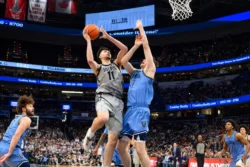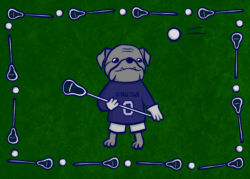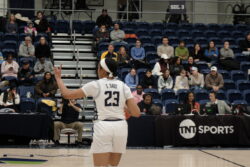Professional cheerleading squads have become an integral part of sports entertainment. These women wave pom poms around, kick the air with spirit and deliver ostentatious smiles to the crowd. Professional cheerleaders have been disregarded as “eye-candy,” and sideline entertainment. But even if these women only are “eye-candy,” don’t they deserve to be properly paid for their services?
Of the 32 teams in the NFL, five are currently facing lawsuits filed by their own cheerleaders. The disgruntled women are demanding higher salaries, claiming the NFL is paying them well under minimum wage. The Buffalo Bills, Tampa Bay Buccaneers, Cincinnati Bengals, New York Jets, and the Oakland Raiders are all facing litigation, and could be in for a heap of trouble if they’re found guilty.
As it stands, NFL cheerleaders earn an average of $2.85 per hour. Granted, each team pays their cheerleaders differently, but for the most part these women earn the same salary as unskilled minimum-wage workers. A Bengals cheerleader is paid $855 for the entire season. The Buffalo Jills revealed they were required to work 16 hours or more per week, including practices and games. Their only compensation? A $25 parking pass and a ticket to each game. The Jets pay their cheerleaders about $150 per game, while the Raiders pay about $125. The cheerleaders remain adamant these salaries are not sufficient for the amount of time they dedicate.
Cheerleaders participate in a high-risk sport. According to the American Academy of Pediatrics, of all injuries among female collegiate athletes, 70.8 percent of them are sustained cheerleading. The sport requires skill and dedication, yet these women are still considered unskilled workers as far as their wages goes.
According to former Dallas Cowboy cheerleader Starr Spangler Rey, work as a professional cheerleader is not valued for the money but for the experience. Many women join professional squads knowing they will not be paid well, but they do so to continue their passion of dance and cheer. The culture within the professional cheer world is to keep quiet about the low salaries, and just appreciate the opportunity to be part of the NFL.
Outside of long practices and game days, the cheerleaders must live according to a strict conduct manual. The Raiders’ handbook was released to the Los Angeles Times, outlining painfully specific behavior details. For dining etiquette, the guidebook states, “If you don’t like your meal, try a little of everything and strategically move the rest around your plate.”
Alternatively, the Bills handbook tells the cheerleaders how to properly wash their vaginas. They even instruct their performers to not eat more than one or two pieces of bread in a formal dinner setting. Teams try to justify such micromanagement by claiming these women are an extension of their franchise, and their behavior will be considered a reflection of the team.
Lawsuits were filed by individual cheerleaders at the beginning of 2014. We are now beginning to see the results of the debate. The U.S. Department of Labor declared the case of the Raiders to be closed. They ruled that the Raiders were not responsible for paying their cheerleaders minimum wage, deeming them “seasonal amusement,” and not regular employees. When the case went to private arbitration, the Raiders decided on a $1.25 million settlement to be dispersed among 90 women. Additionally, the Raiders will now be paying their cheerleaders minimum wage.
While this result sets a good precedent of support for these amazing athletes, other practitioners haven’t been so lucky. The Bills disbanded their cheerleading squad after facing two lawsuits last April.
In the face of such blatant disregard for talent, it’s important to remember cheerleaders are huge assets to their franchises. Every season, the Cowboys cheerleaders rope in $1 million, attending fundraisers and promoting the team throughout the community. Although these women only perform seasonally, they are committed to promoting the public image of their franchise full time. Cheerleaders are much more than what our Department of Labor has considers them to be.
Fans may regard cheerleaders as the eye candy on the sidelines of football games, but they are also professional dancers who deserve equal pay.




